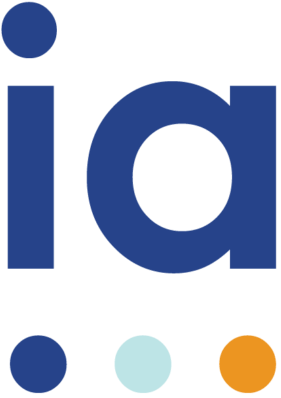Continuous Improvement
I come from a family of curious people.
My dad has been dubbed “The King of Useless Knowledge” by family and friends because he knows a little bit about everything. He would have been a great phone-a-friend candidate on Who Wants To Be a Millionaire. He didn’t just magically acquire all this knowledge; he’s continually looking things up and educating himself. Back in the day he had this giant encyclopedic dictionary that was his go-to source. These days Google makes the pursuit of useless knowledge far more easily accessible.
My 9-year-old nephew is also one of the most curious people I know. He regularly has various science experiments in process, consumes endless YouTube videos, and wows everyone with some random fact (seriously, what 9-year-old knows the difference between countable vs. uncountable infinity? Where did he even hear this??).
I like to think that I’ve inherited some of that familial curiosity. For me it manifests as a desire to continually pursue new knowledge and skills. As a proponent of lifelong learning, I’ve always been happiest when gaining new expertise, exploring new topics, mastering a new skill, or in general just broadening my horizons. In a previous job, I had a poster hanging in my office that said:
“The most important characteristic for growth is insatiable curiosity. The minute you know it all, you’re dead.” (Source unknown)
And I’ve tried to live that every day. But it’s not always easy, and it takes some deliberate focus and intention.
Older and “Wiser”
I think as children, many of us begin like my nephew, always curious, always questioning. But as we get older and so-called “wiser,” we don’t consistently continue down that path, in constant pursuit of knowledge (like my dad). As we learn more and become “experts” in our chosen fields, it becomes easier to forego a little of our curious nature. We begin to think we know it all, or at least a lot. Gone are the days of wide-eyed wonder, and we abandon the art of asking “why?” Not because we don’t know how to anymore, but maybe because we don’t think we need to, or maybe, in the midst of demonstrating our expertise, we simply forget to. Perhaps we take for granted the knowledge we have, and neglect to seek out more.
The Beginner’s Mindset
So how do we bring more curiosity back to our lives and our jobs? The advantages of asking “why” are numerous – in encouraging innovation, in nurturing a mindset of continuous improvement, in the pursuit of a better way. The concept of embracing a “beginner’s mindset” is a great place to start:
That’s the joy of being a beginner. Beginners see possibilities where experts see problems. We can all benefit from a beginner’s mindsets, even – maybe especially – in areas where we’re experts.
Aytekin Tank
I especially love the idea of asking “stupid” questions. No one wants to appear foolish in front of others, but sometimes that so-called stupid question is really based on assumptions that could use some challenging. When we are willing to abandon those assumptions and approach problems with fresh eyes, we leave behind what we already know and instead embrace what could be.
In Practical Terms
But often before we can ask “why?,” we need to overcome the “why not?” We encourage our clients to do this regularly; when faced with a perceived hurdle, rather than saying it can’t be done or it’s always been done this way, we ask them to think in terms of “but what if….” By focusing on the possible rather than holding tight to all the reasons it can’t be, we pave the way for curiously exploring new thoughts, ideas, and ways to do things, and perhaps finding creative ways to actually make something happen.
Then once we learn to embrace “why not” we can continue to lead the way to more curiosity for ourselves and our teams. We can then:
- Refuse to just accept the status quo, but rather consistently look for opportunities to improve
- Be less of a “rule follower” and more of a “disruptor” in the pursuit of a better way (I know, this one can be tough for HR folks!)
- Recognize that yes, we may know a lot, but that there’s always something new to learn, and we can model that behavior
- Be willing to say, “I don’t know,” and then seek out answers, even if it means asking others for help or advice
And we can continue to remind ourselves that “the minute you know it all, you’re dead.”






